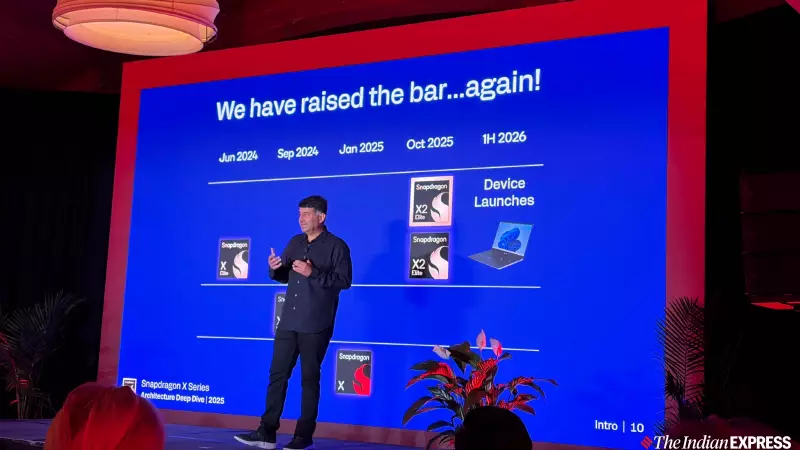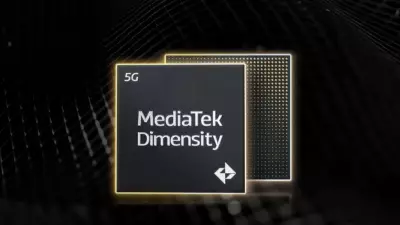
India's Engineering Excellence Drives Qualcomm's AI PC Revolution
Qualcomm has unveiled its groundbreaking Snapdragon X2 Elite and Extreme processor family, marking a significant leap in artificial intelligence computing for Windows PCs. What makes this launch particularly noteworthy is the substantial contribution from Indian engineering teams, who played a pivotal role in developing these next-generation chips.
Kedar Kondap, Senior Vice President and General Manager for compute and gaming at Qualcomm, emphasized India's crucial involvement during an exclusive interview with Indian Express at the company's San Diego headquarters. "From a development standpoint, India's contribution is significant," Kondap stated, highlighting the extensive team spread across multiple locations in the country.
Technical Breakthroughs and Performance Enhancements
The new X2 Elite Extreme chip represents a major advancement in computing power, featuring an impressive 80 TOPS Hexagon NPU specifically designed for AI tasks. This represents a substantial 37 percent performance improvement over previous generations while achieving 16 percent better power efficiency. Qualcomm confidently claims this is currently the fastest laptop NPU available in the market.
The processors incorporate the third-generation Oryon CPU architecture with up to 18 cores, six more than their predecessors. According to company specifications, the X2 Elite Extreme delivers 39 percent faster peak single-core performance and 50 percent faster multicore performance compared to the previous generation chips.
Energy efficiency remains a key advantage for Qualcomm's Snapdragon-powered laptops over those using Intel or AMD processors. The company promises exceptional battery life, with up to 34 hours of continuous video playback capability, creating compelling reasons for consumers to upgrade their existing devices.
Transforming the Stagnant PC Market
Kondap addressed the challenging state of the PC market, noting that it has remained stagnant for nearly a decade. "People are buying only when it's almost a distressed purchase," he observed, pointing out that consumers typically replace laptops only when their current devices stop functioning completely.
The company aims to replicate its smartphone market success by creating clear upgrade incentives for PC users. "We expect them to see a reason to upgrade a PC for the same reason they upgrade phones - because they see value in it," Kondap explained, emphasizing the importance of AI-driven workflows and extended battery life as key selling points.
Qualcomm's strategy includes comprehensive consumer education at retail locations, with special in-store fixtures at partners like Croma to effectively communicate the AI and performance benefits to potential buyers.
India's Strategic Importance in Global Tech Development
The significant Indian contribution to Qualcomm's chip development extends beyond testing to include substantial hardware and software development work. "We have labs globally, including in India, and not just testing but the development of our chips also happens in the country," Kondap revealed, underscoring India's growing importance in global technology innovation.
This development approach particularly targets emerging markets like India, where digital payments and content consumption are experiencing rapid growth. Despite this digital expansion, PC adoption in India remains among the lowest globally, presenting substantial growth opportunities for technology companies.
Industry analysts recognize Qualcomm's progress in competing with Apple's silicon chips. Anshel Sag, Principal Analyst at Moor Insights & Strategy, noted that "Qualcomm has come the closest to competing with Apple if you look at Oryon Gen 3 and Apple's M4 and M5 chips." He further described Qualcomm as Microsoft's best opportunity to compete effectively with Apple in the PC space.
The Snapdragon X series made waves in the PC industry last year by breaking the long-standing Intel-AMD duopoly in Windows laptops. With the enhanced X2 family, Qualcomm strengthens its position while showcasing how Indian engineering talent continues to drive global technological innovation forward.





